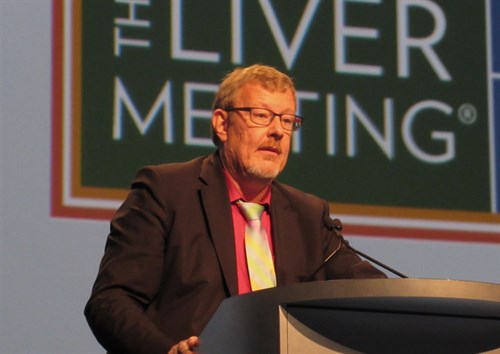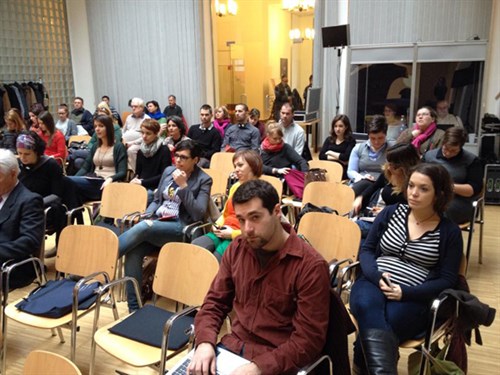Some drugs that show high cure rates for HCV in people with HIV co-infection
With the advent of all-oral direct-acting antiviral regimens, a growing body of evidence indicates that people with co-infection have response rates similar to those of people with hepatitis C alone.
22 Dec 2014AbbVie's 3D regimen (paritaprevir/ombitasvir/ritonavir plus dasabuvir) with ribavirin for 12 weeks and Gilead Science's sofosbuvir (Sovaldi) plus ribavirin for 24 weeks both produced good sustained virological response rates for most people with HIV and hepatitis C virus (HCV) co-infection, according to studies presented at the American Association for the Study of Liver Diseases (AASLD) Liver Meeting last month in Boston, United States.

People with HIV and HCV co-infection tend to experience more rapid liver disease progression and traditionally were considered more difficult to treat using interferon-based therapy than people with HCV mono-infection. With the advent of all-oral direct-acting antiviral regimens, however, a growing body of evidence indicates that people with co-infection have response rates similar to those of people with hepatitis C alone.
TURQUOISE-I: 3D + ribavirin
David Wyles from the University of California at San Diego and fellow investigators presented a poster outlining results from the phase 2 portion of AbbVie's combined phase 2/3 TURQUOISE-I trial. This study tested the all-oral 3D regimen – expected to be approved soon in the US and Europe – for previously untreated and treatment-experienced people with HCV genotype 1 and HIV co-infection, with and without compensated liver cirrhosis.
3D consists of the HCV NS3/4A protease inhibitor paritaprevir (ABT-450), NS5A inhibitor ombitasvir (ABT-267) and a ritonavir booster in a once-daily co-formulation, taken with the twice-daily non-nucleoside HCV NS5B polymerase inhibitor dasabuvir (ABT-333). In this open-label trial, 63 participants were randomly assigned to receive 3D plus weight-based ribavirin for either 12 or 24 weeks.
Harm reduction in Hungary: Need for political leadership
In Hungary - an EU member state that is not eligible to receive Global Fund money - lack of political and financial support led to the closure of the largest needle and syringe program.
24 Dec 2014
At the national harm reduction conference in Budapest, presenters from Greece, Romania and Hungary reported that there are similar problems and challenges in relation to injecting drug use in Southern-Central Europe, but there are huge differences between government responses. Lack of political leadership is leading to growing HIV and hepatitis C infections among drug users all over the region.

In Budapest, on December 16, at the national harm reduction conference organised by the HCLU, a number of service providers, activists, law enforcement professionals, and researchers gathered to discuss the key challenges lying ahead for harm reduction.
The opening speech pointed out that there is a global funding crisis within harm reduction: the UN estimates that 2.3 billion USD are needed to fund HIV prevention programs among injecting drug users, but only 160 million USD are actually being spent. International donors are retreating from middle-income countries, where most IDUs live, and national governments are not providing adequate funding for harm reduction programs. The consequences are obvious: life-saving services are being shut down, access to existing services is restricted, and the risk of blood-born infections is growing.
In Hungary - an EU member state that is not eligible to receive Global Fund money - lack of political and financial support led to the closure of the largest needle and syringe program, and other NSPs are in danger too. This happened in a neighbourhood where eight out of ten IDUs are living with the hepatitis C virus, and new HIV transmissions have been reported as well.
While Hungarian government regulations require NSPs to employ at least 3 full-time and 1 part-time professionals, the annual core grant (appr. 25.000 USD) for these programs is not even enough to pay the salaries of these employees, not to mention growing overhead and equipment costs. Therefore NGOs submitted a proposal for a new progressive funding mechanism for harm reduction programs - suggesting an increase in the core grant, to 50.000 USD, and provision of additional funds for supplementary services, such as drop-in, as well as for supply of good-quality needles and syringes.
Doctors can lead the way to healthier drug policies – join IDHDP now.
Share this on: